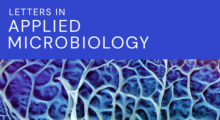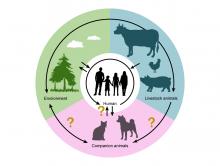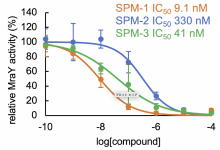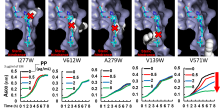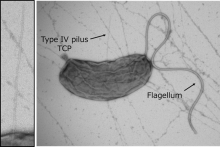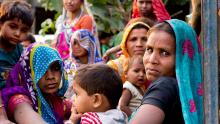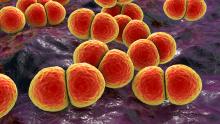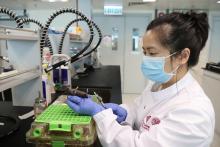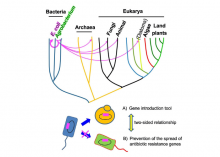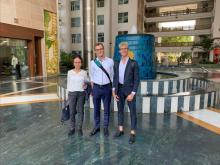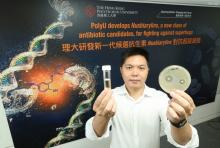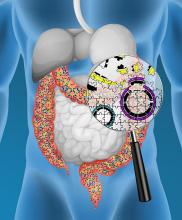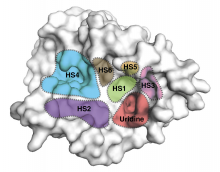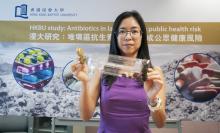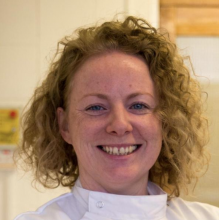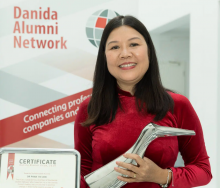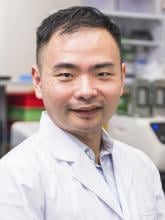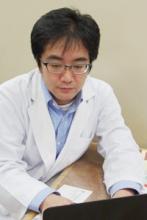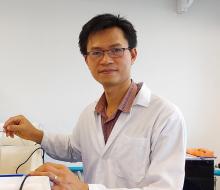Antimicrobial Resistance (AMR)
News
16 Nov 2023
The winners of the Applied Microbiology International Horizon Awards were announced at the prestigious Environmental Microbiology lecture 2023, held at BMA House in London on November 16.
16 Oct 2023
The shortlist for the Applied Microbiology International Awards 2023 has now been announced.
The AMI Awards programme is designed to celebrate the brightest minds in our field and promote the research, group, projects, products and individuals who continue to help shape the future of applied microbiology.
31 Aug 2023
Applied Microbiology International (AMI) is boosting training and development opportunities for early career scientists in journal publishing with the appointment of 14 new junior editors on its flagship journal Letters in Applied Microbiology (LAM). They were selected from more than 100 applicants by the Editor-in-Chief, Dr Marcela Hernández.
11 Aug 2023
Asia Research News monitors the latest research news in Asia. Some highlights that caught our attention this week are particle pollution linked to antibiotic resistance and microplastics being found in the body, fossils that show a marine reptile that used filter feeding, and how a connection in our brains compares our rewards to ones that others received.
19 Jul 2023
Scientists have combined two light wavelengths to deactivate a bacterium that is invulnerable to some of the world’s most widely used antibiotics, giving hope that the regime could be adapted as a potential disinfectant treatment.
08 May 2023
Osaka Metropolitan University scientists investigated the prevalence of antimicrobial resistant bacteria in 678 bacterial isolates from 428 companion dogs and 74 companion cats at the Veterinary Medical Center, Osaka Metropolitan University. Two E. coli strains have both a mobile colistin-resistant mcr gene and a third-generation cephalosporin-resistant blaCTX gene. One of these strains, which is found in a dog, was resistant to both colistin and third-generation cephalosporins.
14 Apr 2023
Asia Research News monitors the latest research news in Asia. Some highlights that caught our attention this week are a foldable buggy that can be used on the moon, synthetic nano-nets to help combat antibiotic resistance, and how that new car smell may not be a good thing.
17 Feb 2023
Tree rings forecast extreme weather in central Asia, Squid 🦑and chemistry make versatile hydrogels, James Webb telescope reveals the earliest galaxies & Reducing negative effects of screen time. Read all in the latest Editor's Choice. Plus our latest journalist resource "Experts for Media: Antimicrobial Resistance "🦠.
17 Feb 2023
Antimicrobial resistance is a global public health threat. Asia Research News has prepared a resource for journalists to find stories and connect with scientists combating antimicrobial resistance.
20 Dec 2022
Researchers have designed and synthesized analogs of a new antibiotic that is effective against multidrug-resistant bacteria, opening a new front in the fight against these infections.
31 Oct 2022
Researchers from Osaka University used a combination of genetic manipulation and protein structural analysis to determine how the position of “bulky” amino acids influences the ability of efflux pump inhibitors to bind bacterial pump proteins and so reduce their resistance to antibiotics. This work has implications for our understanding of bacterial antibiotic resistance, and may be useful in the rational design of drugs that target bacteria that have evolved antibiotic resistance.
14 Oct 2022
Researchers from Osaka University have found that the Vibrio cholerae colonization factor TcpF forms a flower-shaped trimer to specifically bind to the minor pilus protein TcpB resulting in secretion by the type 4 pilus secretion system into the extracellular space. This finding could help lead to the development of a novel anti-adhesive drug that selectively interrupts the TcpF-TcpB interaction, which may replace antibiotics in the treatment of cholera.
21 Apr 2022
Genome profiling of Staphylococcus argenteus strains unveiled cross-contamination among Japanese retail foods and slaughterhouses.
04 Mar 2022
A recent study in The Lancet provides the most comprehensive understanding of this global health problem to-date.
04 Mar 2022
The Asian Development Bank partnered with global institutions to examine efforts to curb one of humanity’s most significant global health threats.
03 Mar 2022
Asia Research News surveyed institutions in Asia to learn about their latest contributions to antimicrobial resistance research.
29 Sep 2021
A research team led by scientists at Hong Kong Baptist University (HKBU) has developed a novel cell sensor with a barcode-like micro-channel structure that enables rapid and low-cost screening of drug-resistant bacteria. The invention could potentially be used on a large-scale in resource-limited situations such as frequent safety screenings of water, food and public facilities, as well as urgent surveys of massive samples during an infectious disease outbreak, particularly in developing countries.
28 Sep 2021
While the Covid-19 pandemic is ongoing, another public health threat, antibiotic resistance, continues unabated. Microbiologists and chemists from two universities in Hong Kong recently made a breakthrough in synthesizing the first vaccine against one of the most deadly antimicrobial resistant pathogens, Acinetobacter baumannii (A. baumannii). The vaccine shows good protection against the superbug in mice, indicating great potential as a vaccine for humans.
17 Jun 2021
Researchers from Hiroshima University now have a better understanding of the mechanism underlying how certain bacteria can transfer genetic material across taxonomic kingdoms, including to fungi and protists. Their work, published in Frontiers in Microbiology, could have applications in changing how bacteria perform certain functions or react to changes in their environment.

02 Dec 2020
“Superbug” resistant to strong antibiotics is a ticking time bomb in global public health. A joint study led by a scientist from City University of Hong Kong (CityU) has traced the potential origin of an antibiotic resistance gene and identified a type of bacteria as the possible source. The team also studied the gene’s transmission mechanisms and published their findings recently, in the hope of blocking its transmission.
11 Feb 2020
New Delhi – To tackle the escalating problem of antimicrobial resistance, a new collaboration platform was launched in New Delhi, India, on 11 February. The platform, initiated by Stockholm International Water Institute (SIWI), will bring together actors from civil society, governments and the pharmaceutical industry. It could mean a major breakthrough for the responsible manufacturing of antibiotics and reduce the risk of the industry itself contributing to the spread of antimicrobial resistance.
13 Jan 2020
The war against antibiotic resistance requires a conceptual revision, namely design and creation of new types of degradable antibiotics with novel intracellular interactions, says Nobel Prize in Chemistry (2009) laureate Ada Yonath.
24 Sep 2019
The Hong Kong Polytechnic University (PolyU) has developed a new class of antibiotic drug candidates which has high potential to be developed into a new generation of antibiotics fighting against multi-drug resistant superbugs including methicillin-resistant Staphylococcus aureus (MRSA).
19 Aug 2019
A new high-resolution approach using portable DNA sequencers provides a more complete genomic picture of antibiotic resistance in gut bacteria.
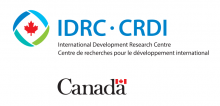
05 Aug 2019
Malaysia seeks alternative solutions to prevent and treat infectious diseases in shrimp.
02 Aug 2019
Researchers reveal previously undiscovered hot spots on the surface of bacteria’s critical enzyme, which could guide novel approaches to antibiotic design.
17 Jan 2019
HKBU scholars invented the world’s first multidimensional antimicrobial susceptibility testing system. The new technology can provide information about drug resistant pathogens present in patients, enabling doctors to accurately determine the effectiveness and appropriate dosage of antibiotics needed for effective treatment.
12 Oct 2018
A research group at Tohoku University has made a significant discovery with positive implications for the development of bacteria-fighting drugs. The aminoacyl-tRNA site (A-site) of the 16S RNA decoding region in the bacterial ribosome looks promising for a new era of antibiotic drug development.
18 Sep 2018
The large quantities of discarded antibiotics in Hong Kong’s landfills pose a pollution problem and a potential hazard to public health and ocean life, a new study by a Hong Kong Baptist University (HKBU) scholar says.
Events
Sorry, no events coming up for this topic.
Researchers
Dr Sarkar is a senior research fellow at the Murdoch Children's Research Institute in Melbourne, Australia. She is
actively engaged in collaborating with academic and industry stakeholders and leads multiple projects for the development of novel therapeutics/vaccines to tackle antimicrobial resistance.
Dr Linny Kimly Phuong is a paediatric infectious diseases physician and researcher. She holds appointments at the Royal Children’s Hospital, Cabrini Health and the Murdoch Children’s Research Institute. Linny’s areas of research include paediatric infections, Kawasaki disease and vaccine safety.
I am a microbiologist currently working as a lecturer in the Medical Microbiology Department, Faculty of Applied Science, Hajjah University, Yemen. I am interested in research areas related to the prevalence of infectious diseases caused by bacteria, viruses, fungi, and parasites in different areas in Yemen.
A/Prof Matthew Tan is a Food Security Specialist and an Aquaculture veteran with more than 20 years’ experience in the Agritech Industry.
He is currently driving several sustainability projects in the area of Carbon Neutral Engineering and specializes in Aquaculture & Agriculture carbon credit & sequestration with regards to regenerative & restorative activities in the areas of biodiversity, CSR aquaculture and use of climate smart technologies with the aim to develop true impact projects to reduce carbon emissions, plastic waste, protect biodiversity, and drive investment into local communities as he assist companies with their Carbon Transition Strategy and Planning.
Institute for the Advanced Study of Human Biology (ASHBi), Kyoto University
Dr Ashfaq Ahmad Shah 'اشفاک ' born on 6 June 1992, from south Kashmir, Doderkoot ددیرکوٹ Kulgam, Jammu and Kashmir, India is the infection immunity doctoral researcher at the Graphic Era (Deemed to be University), Dehradun, UK, India. Dr Shah is pursuing novel dimensions of infection immunity pertaining to the correlation and impact of phyto-immune components termed phytoalexins and phytoanticipins on the benign immune system of human beings. This parameter of immunology is termed phytoalexin-immunomodulation scrutiny. His area of interest lies in Preclinical and clinical studies, i.e. vaccine adjuvant development, development of anti-inflammatory and antimicrobial compounds, evaluation of antibiotic resistance, study of Immuno-modulatory activities, disease model studies, protease isolation against specific protein antigens, and the discipline of Kalology including tyrosinase inhibition, PPO inhibition, skin whitening agents, kerato-peeling etc. Dr Ashfaq is a Doctoral Researcher, Reviewer and Editorial member of several journals and books. He is having several publications in journals of national and international repute. So far he has published more than thirty scopus infection/immunology/pharmacology scientific papers, including Fifteen international book chapters and two international books. Mr Shah received the Young scientist award in August 2023 for his groundbreaking academic performance in the field of infection immunity. Mr Shah has also been an editor of Wikipedia pages in medical science since 2015 with more than 1000 edits in medical topics available to medical literature worldwide.
Dr. Hira Khalid is serving as Associate Professor at Forman Christian College University, Lahore, Pakistan. She is also a US Fulbright Fellow and a member of several prestigious scientific organizations, including the American Chemical Society (ACS), the Royal Society of Chemistry (RSC), the International Union of Pure and Applied Chemistry (IUPAC), the Organization for Women in Science for the Developing World (OWSD), and the Chemical Society of Pakistan (CSP).
Dr. Crumlish has researched aquatic microbial diseases, specifically ones that have economic impact in global aquaculture, and potential solutions to such infectious diseases. Her current project seeks to develop vaccines against antimicrobial resistance in aquaculture.
The Agency for Science, Technology and Research (A*STAR)
Dr. Tay has researched antibodies and diseases like malaria and SARS-CoV-2 at A*STAR. His focus is on discovering methods for developing antibodies that can be used in therapies against multidrug-resistant pathogens.
Nguyen Huu Nghia is the Director of the Center for Environment and Disease Monitoring in Aquaculture (CEDMA) at the Research Institute for Aquaculture No.1 (RIA1) under Vietnam’s Ministry of Agriculture and Rural Development. He has co-managed various research efforts in Vietnam aquaculture as well as published recent research into the use of nanobubbles.
Dr. Van was previously the Director of the Research Institute for Aquaculture No.1 (RIA1) under Vietnam’s Ministry of Agriculture and Rural Development. She has extensive expertise in aquatic animal health and aquaculture safety management.
City University of Hong Kong (CityU)
Dr. An is an associate professor at the School of Energy and Environment, City University of Hong Kong (CityU), where she also heads the Water and Membrane Technologies Laboratory.
City University of Hong Kong (CityU)
Professor St-Hilaire is associate head and professor at the Department of Infectious Diseases and Public Health, City University of Hong Kong (CityU). She has extensively researched fish nutrition and diseases, including treatment efficacy, and has helped investigate fish disease outbreaks.
Universiti Putra Malaysia (UPM)
Dr. Ikhsan is an associate professor at the Department of Aquaculture, University Putra Malaysia. She specializes in the field of Aquatic Microbial Ecology particularly in the development of innovative and sustainable microbial management strategies through understanding of the host-microbe interaction for enhanced microbial stability.
The Agency for Science, Technology and Research (A*STAR)
Dr. Oehlers leads the Bacterial Pathogenesis Laboratory at A*STAR ID Labs, where he and his colleagues focus on identifying molecular bases of mycobacterial disease and, thus, deploy therapies that address antibiotic resistance in mycobacterial infections.
The Agency for Science, Technology and Research (A*STAR)
Dr. Yue Wang is senior principal investigator at the Antifungal Resistance Laboratory of A*STAR ID Labs, where his body of work focuses on virulence mechanisms of the fungal human pathogen Candida albicans.
The Agency for Science, Technology and Research (A*STAR)
Dr. Singhal serves as senior principal investigator at the Bacterial Immunopathology Lab at A*STAR ID Labs in Singapore. His work at A*STAR ID Labs revolves around three main pathogens: Mycobacterium tuberculosis, Gram-negative bacteria and Dengue virus.
The Agency for Science, Technology and Research (A*STAR)
Dr. Bifani is a principal investigator at A*STAR ID Labs at their Antimicrobial Resistance Lab. He has extensively researched antimicrobial resistance in tuberculosis and malaria. He is also an associate professor and research director at the Yong Yoo Lin School of Medicine, National University of Singapore.
City University of Hong Kong (CityU)
Dr. Yan is an assistant professor at the Department of Biomedical Sciences, City University of Hong Kong (CityU). His current research focuses on developing genomic tools to dissect lncRNA function and mechanism in diseases and to identify genetic variations that contribute to disease pathogenesis.
City University of Hong Kong (CityU)
Dr. Deng is a biomedical scientist with a special interest in bacterial virulence, including gene regulation, signaling pathways, and RNA epigenetics. He has worked on virulence regulation in pathogens to discover new therapies against bacterial infections.
Osaka Metropolitan University
Dr. Ozawa is a Specially Appointed Professor at the Department of Dermatology, Graduate School of Medicine, Osaka Metropolitan University (formerly Osaka City University). His specialized field is skin malignant tumor and surgery.
Kyoto University
Dr. So Iwata is a Professor at the Graduate School of Medicine Kyoto University and the Group Director of the SACLA Science Research Group, RIKEN SPring-8 Center. He has investigated how specialized membrane channels remove antimicrobial drugs from inside bacterial cells.
Ulsan National Institute of Science and Technology (UNIST)
Dr. Mitchell is a professor at the Department of Biological Sciences, Ulsan National Institute of Science and Technology (UNIST). His primary research interest is the study of bacterial strains that attack and prey on other bacteria, including antimicrobial-resistant pathogens.
Dr. Soojin Jang heads the Antibacterial Resistance Research Laboratory at Institut Pasteur Korea, where her team focuses on discovering new antibacterial agents for “superbugs” or bacteria resistant to most antibiotics.
Duke-NUS Medical School
Dr Kwa is currently a Pharmacy Clinician Scientist and Assistant Director, Pharmacy (Research), at the Singapore General Hospital. She specializes in critical care medicine, infectious diseases and antimicrobial resistance research.
The Asian Institute of Technology
Dr. Dong currently works at the Asian Institute of Technology. He does research in Aquaculture, Pathology, Infectious Diseases, and Aquatic Bioscience.
Suraj Bhattarai is a global health specialist and tropical medicine physician with research interests in infectious disease epidemiology and surveillance, health systems, and urban health. He is a co-founder and research fellow at the Global Institute for Interdisciplinary Studies, a Kathmandu-based academic institute that promotes and conducts interdisciplinary research. He is a member of Global Young Academy and an Alumni steering committee member of IAP-Young Physician Leaders Programme. He obtained medical training in Nepal and masters in Tropical Medicine & International Health from the LSHTM, UK.
City University of Hong Kong (CityU)
Prof. Chen’s current research covers research on bacterial antimicrobial resistance, virulence and tolerance in the veterinary, food and medical microbiology fields
Giants in history
Sorry, no researchers coming up for this topic.




